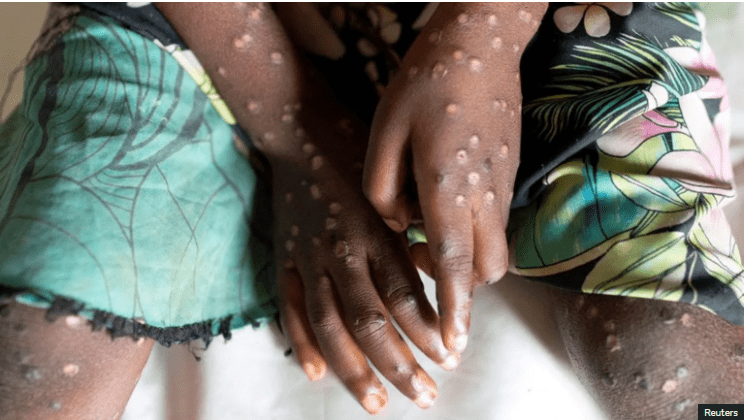Mpox now a public health emergency in Africa: Keep Safe
Mpox, also known as monkeypox, has been classified as a public health emergency in Africa by the continent’s leading health organization. Experts from the Africa Centres for Disease Control and Prevention (Africa CDC) have expressed concern regarding the rapid transmission of a new variant of mpox. Since the start of the year, the Democratic Republic of Congo has reported over 13,700 cases and approximately 450 fatalities. The virus, which can result in lesions throughout the body, has also been detected in several other African nations, including Burundi, the Central African Republic (CAR), Kenya, and Rwanda.
The declaration of a public health emergency is expected to facilitate governmental coordination in response efforts and may enhance the distribution of medical supplies and assistance to the affected regions. Jean Kaseya, the head of Africa CDC, cautioned that without prompt action, the disease could escalate uncontrollably.
“This declaration is not simply a procedural step. It serves as a call to action. It acknowledges that we can no longer remain reactive; we must adopt a proactive and vigorous approach to contain and eradicate this threat,” he stated. Health authorities outside of Africa are also closely observing the situation to evaluate the potential for the outbreak to spread further. On July 29, the European Centre for Disease Prevention and Control assessed the risk posed by the mpox virus in Europe as “very low.”
Mpox Transmission
Mpox is transmitted from animals to humans and can also spread between individuals through close physical contact with an infected person. This includes interactions such as sexual activity, skin-to-skin contact, and proximity during conversation or breathing. The disease may present symptoms including fever, muscle pain, and lesions on the body. If not treated, mpox can be fatal. There are two primary strains of the virus identified. The less severe strain was responsible for the global outbreak in 2022, which impacted regions such as Europe, Australia, and the United States, primarily spreading through sexual transmission.
The more virulent strain, which is endemic to central Africa, has been linked to a newly identified variant in the Democratic Republic of Congo. Although three vaccines are available, they are typically administered only to individuals at risk or those who have had close contact with an infected person. Dr. Kaseya indicated that efforts are underway to acquire approximately 10 million doses to help curb the disease’s spread in Africa.




